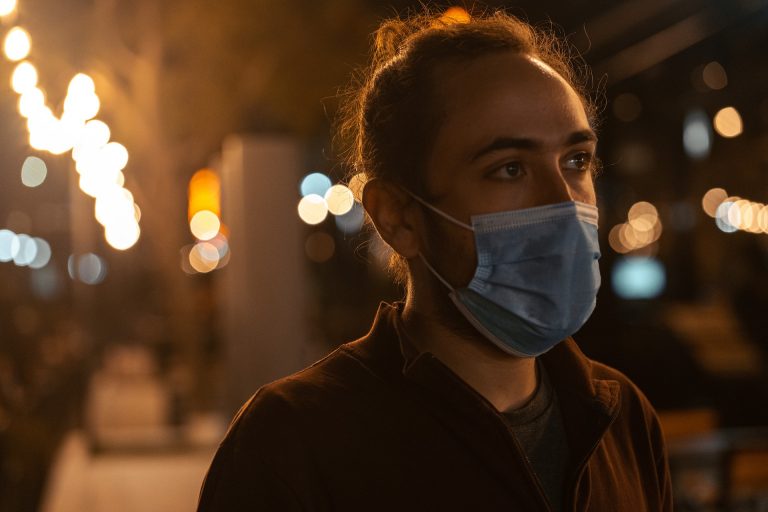Kerala, a small state in southern India governed by a communist party, has the highest number of Coronavirus Disease 2019 (COVID-19) cases in the country. In the week ending Sept. 4, Kerala was responsible for 69.59 percent of the COVID-19 cases in India despite accounting for just 2.76 percent of the nation’s population. On Sept. 9, Kerala reported 181 deaths, which was over 50 percent of India’s total death toll of 338 that day.
The state’s government, the Communist Party of India (Marxist)-led Left Democratic Front (LDF), had won the 2021 Assembly Election by a considerable margin, winning 99 out of 140 seats. The communist party has a long history of being elected to power in a state that prides itself on its high level of education.
Last year, Kerala was touted as a model for the entire country on how to manage the COVID-19 pandemic. However, this is no longer the case. Not only does Kerala have high rates of infection and mortality, but also the state has a high Test Positivity Rate (TPR) of 13.07 percent.
“If there is one thing which we should have learnt from India’s pandemic by now, it is to treat narratives of exceptionalism with caution,” Dr. Murad Banaji, a mathematician at London’s Middlesex University who has been following the pandemic closely, told the BBC.
Bharatiya Janata Party (BJP), the opposition party in the state and the ruling party nationally, has alleged that more than half the COVID-19 tests being conducted in Kerala are antigen tests instead of reverse transcriptase-polymerase chain reaction (RT-PCR) tests that are seen by the health ministry as the “gold standard.”
Success
You are now signed up for our newsletter
Success
Check your email to complete sign up
According to Dr. Gopikumar, Kerala Secretary of the Indian Medical Association (IMA), the state must do away with antigen tests if it hopes to control the pandemic. Calling antigen tests unreliable, he pointed out that even symptomatic patients were testing negative for the virus. In contrast, almost 90 percent of such cases would theoretically correctly test positive in RT-PCR tests.
“The problem is that we have not developed our RT-PCR testing capacity. So, if we decide to go for RT-PCR tests alone, then it will take more time to get the results and then again the risk of transmission remains high,” Dr. Arun N M, internal medicine expert, told Times of India.
Interestingly, the spike in infection rates has occurred despite the fact that Kerala is leading the country in vaccinations. Among the Indian states with a population of over 10 million, Kerala ranks first in terms of vaccine shots administered per million.
As of Sept. 9, 50.5 percent of Kerala’s 18 to 44-year-olds have been vaccinated. Among 45 to 60-year-olds, the number drops to 29.7 percent, while for those above 60, the vaccination rate is 19.8 percent. Around 40 percent of the Indian population has been vaccinated with at least one dose, with over 12 percent fully vaccinated.
According to a Sept. 9 report by The Hindu, almost 27 percent of vaccinated individuals in the Ernakulam district of Kerala have tested positive for COVID-19 in the past four weeks. In July, 19.33 percent of infections were among the inoculated, while in August, this number jumped to 27.21 percent.
Kerala recently lifted its night curfew and Sunday lockdown restrictions. Earlier, Chief Minister Pinarayi Vijayan had dismissed the idea of imposing a lockdown across the state.
“No one supports measures like statewide lockdown. This will create a huge crisis for the economy and livelihoods. Expert opinion is that we need to build social immunity and move back to normal. Caution should not be compromised at all,” Vijayan said. Schools and other training institutes in Kerala are functioning on a “bio-bubble model,” with sanitized environments and vaccinated people coming into contact with school students.
As to why Kerala is reporting such a high number of infections, there are several opinions. Some believe that Kerala is conducting more tests and thus recording more COVID-19 cases. Others point to government mismanagement. A few suggest that the high population density of the state might be a factor.
According to Kerala health minister Veena George, people recovering from COVID-19 at home are violating quarantine rules, which she says is a reason for the high number of COVID-19 cases. She cited a study stating that 39 percent of people in Kerala were infected with the virus while at home. Some experts pointed to recently held religious festivities as a contributing factor to the spike in infections.
“The second surge has not yet concluded. It is not over and therefore, we have to maintain all necessary precautions, particularly in light of our experience that after every festival we see a spike… [The] months of September and October are crucial for us because we would be celebrating a few festivals. Thus festivals have to be celebrated with Covid-appropriate behaviour,” Union health secretary Rajesh Bhushan said in a statement.
Meanwhile, 68 people in the state are under isolation due to a possible Nipah virus infection. A 12-year-old boy reportedly died after contracting the virus. The Nipah virus is far deadlier than COVID-19, having a fatality rate of 40 to 75 percent. There is no vaccine available for the virus, and treatment is centered around supportive care and managing symptoms.














